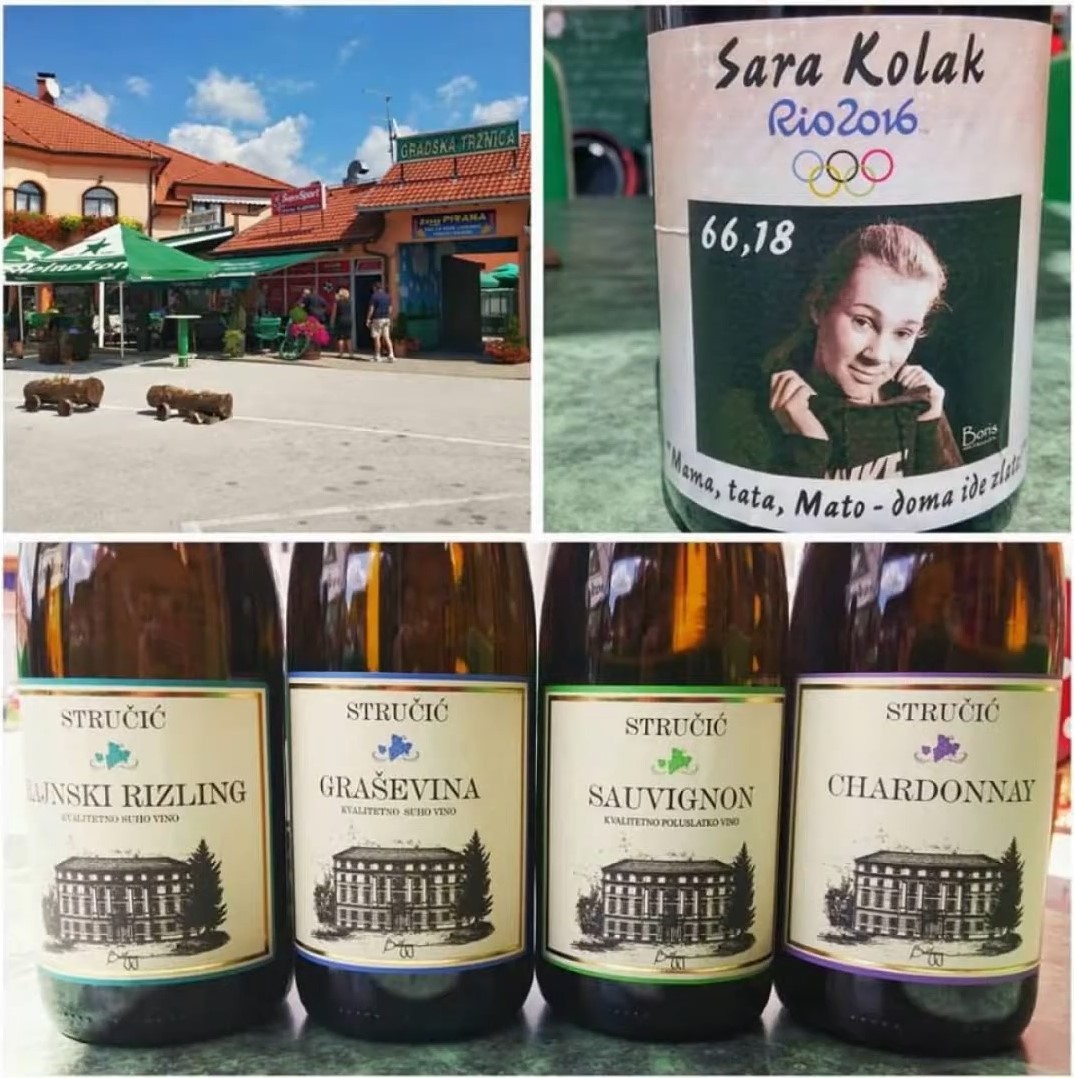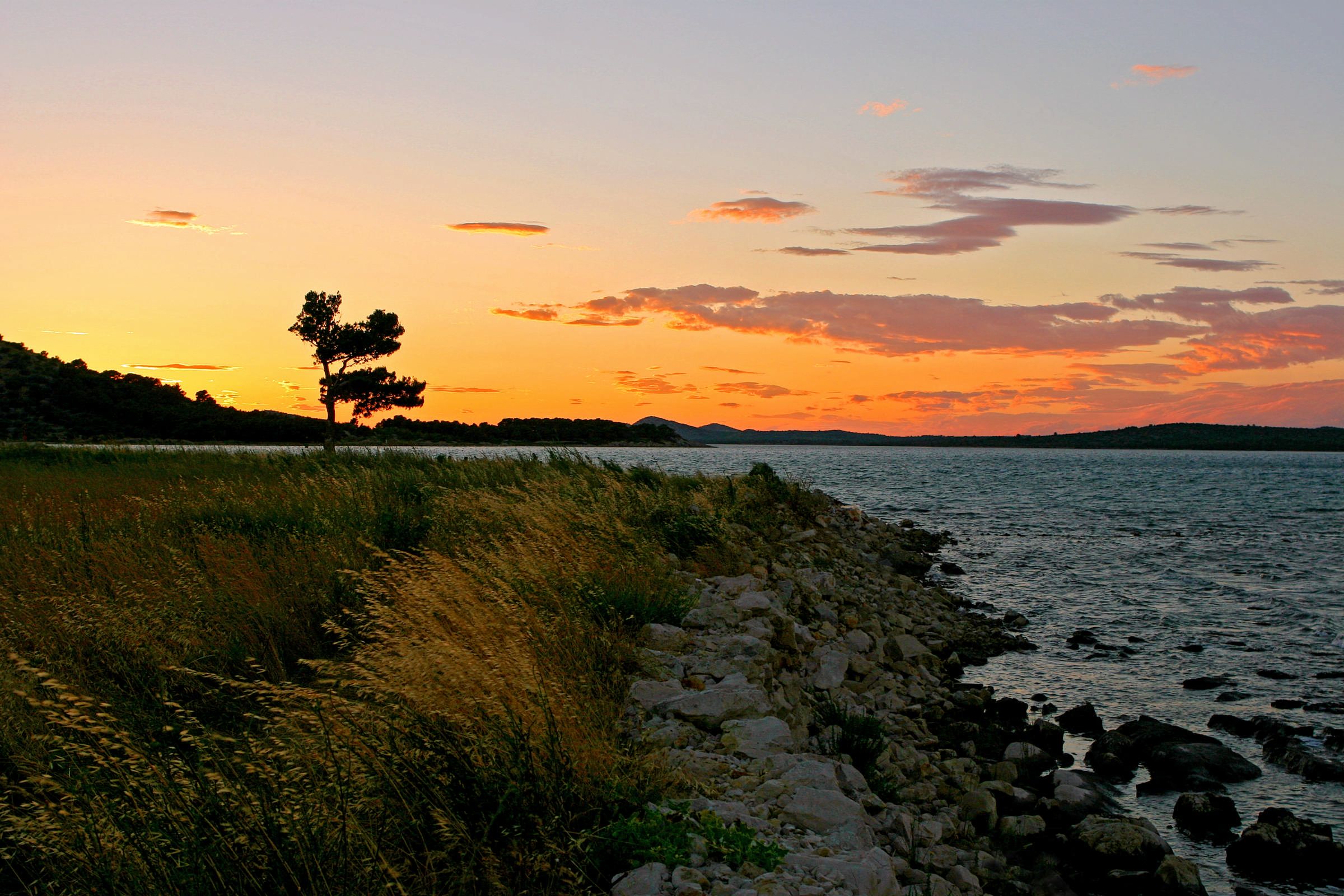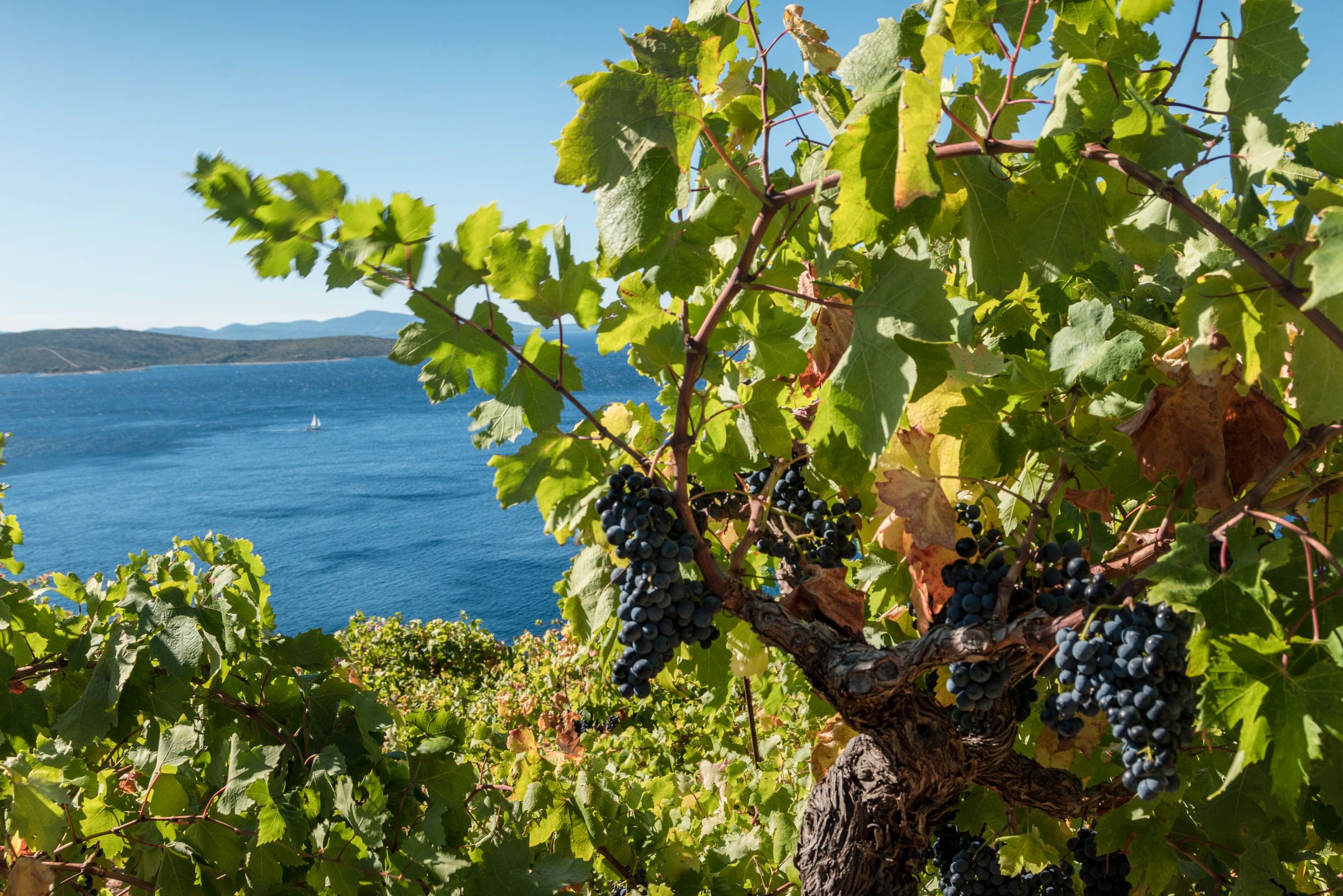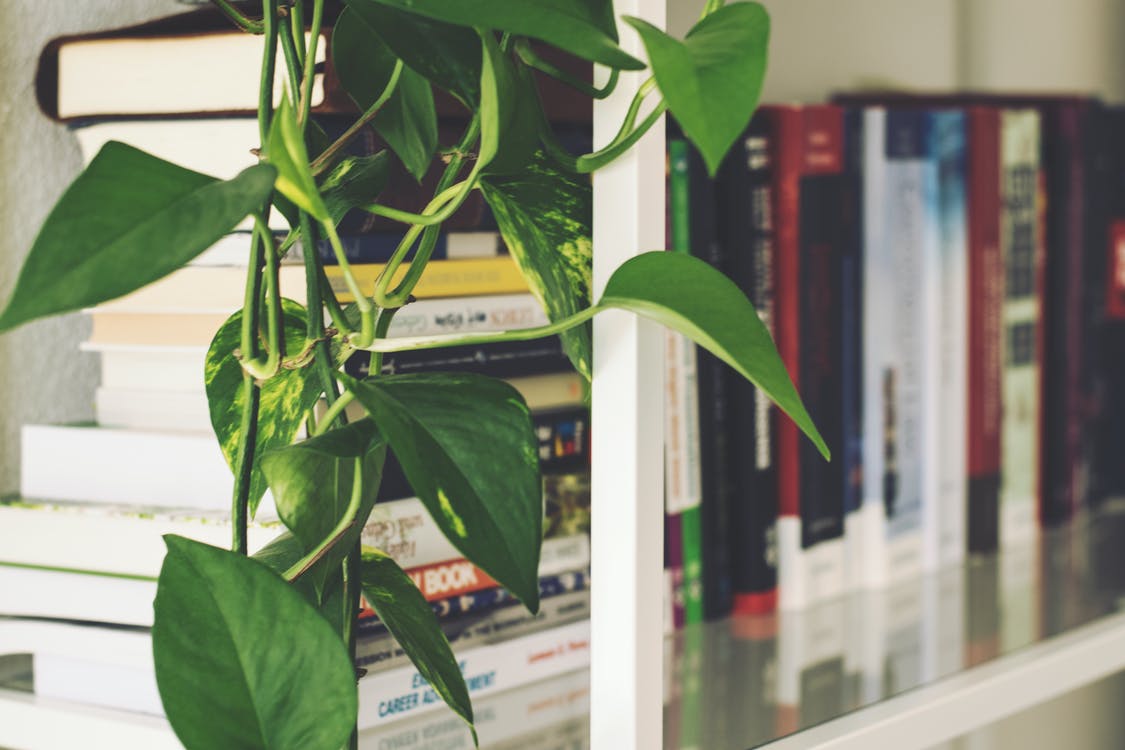Ludbreg Winemakers' Wines Thrive Due to God-Given Microclimate
January 23, 2021 – The feast of St Vincent's Day, Vincekovo, could not be celebrated this year due to the epidemiological situation, but Ludbreg winemakers continue to focus on their wine production. Thanks to the very favorable climate, the Ludbreg area is suitable for planting vineyards, and local winemakers hope to soon get their well-deserved place on the Croatia's wine list.
Vincekovo, which was celebrated yesterday, January 22, in the Ludbreg area, used to be celebrated in Globočec when the plantations were blessed. The main event was a traditional and unique exhibition of young wines from the Ludbreg and surrounding vineyards, which was canceled this year due to strict epidemiological measures and a challenging situation.
It is an additional blow for all caterers who suffered the most in the corona crisis and wine producers. Local winemakers and winegrowers will wait for some better times to meet and rejoice with friends.
Sanja and Tomislav Stručić, top winemakers from Ludbreg, who met with TCN in Ludbreg last year, told their business story for the Epodravina.hr portal.
Family vineyard three kilometers from the center of the world
"We were pleased by the announcement that we could reopen our doors in February, but if we won't open until Easter, as announced, the season is questionable. We are very affected," says winemaker Sanja Stručić.
However, despite the pandemic, wine lovers are not resting. Caring for the vineyards is a year-round work, essential for producing good wine. The season begins now when the first pruning is done and lasts until the harvest.
"Last year, we estimated that, given the situation with the coronavirus, we would have stocks of wine. Therefore, we reduced the grape yield during pruning in the spring. We left grapes for sparkling wine and wines to age. We want to produce quality, not quantity, that is, high-quality wines," says the Stručić family.

Sanja and Tomislav Stručić with Paul Bradbury in 2020, Total Croatia News
Their beautiful wine-growing hills, clean air, excellent wine, and hospitality evoke the love of land and viticulture that began in 1984 with a family vineyard just three kilometers from the center of the world. Sanja's father, Dragutin Crnković, once planted the first vineyard there, passed on his love of viticulture to his daughter, and introduced her to the wine business.
Emphasis is on the premium line of nature wines
Sanja's husband, Tomislav, also fell in love with winemaking and viticulture. In 2000 they founded the Winery, and in 2017 they produced the first sparkling wine in the region. They are the new wine style leaders in Varaždin County, and today they create top and quality wines.
Stručić Winery has become one of the most famous and successful and began more severe production in 2002. The emphasis is on the premium line of wines represented by nature wines. The premium line consists of carefully selected bunches hand-picked from selected vines. Sanja showed her love, passion, and care for each of these grapes before they become wine.
"Only ripe grapes are picked from the petiole by hand, clean and healthy. Fermentation on own yeasts and grapes, without the addition of selected yeasts, produces natural wines. This top line comes in different bottles and has different labels. We have been making it in small batches, approximately 750 bottles, for four years now, every year with a new vintage," says Sanja.
Back in 2016, Stručić family even produced a special edition of Sara Kolak Chardonnay to celebrate the local Olympic javelin gold-medal winner.
Journalists who encourage stories about gastronomy, tourism, and hedonism are also responsible for the turn in wine production. The Stručić family decided to take advantage of the microclimate and their plantations' position, which enable them to produce excellent raw materials for the production of different wine styles.
"We researched and realized that our region is a microclimatic God-given. While visiting various wine fairs and festivals, we realized we want to make different wines. The exhibitions were an incentive for us to expand our knowledge to be as good as possible. We also visited wineries in Italy to get a better insight into their viticulture and winemaking that is at a high level, and to apply experiences and some wine secrets in our vineyard and cellar," says Sanja on how they started producing sparkling wine and natural wine.
Produced the first sparkling wine in the region
The family vineyard initially had 3,500 vines and was later expanded with new plantations. Today, they cultivate three and a half hectares of land with 14,000 vines. It consists of plots named after the youngest members: Lucija, Luka, and Petra, and the newest plantation was named after their niece Katarina. The plots are registered by varieties and years of planting. The rulers of their vineyard are Graševina, Chardonnay, Rhine Riesling, Sauvignon, Portuguese and Yellow Muscat.
"We produce Graševina, Chardonnay, Sauvignon, Rhine Riesling, and mixed wines. Poštenjak is a blend – a mixture of Graševina, Chardonnay, and Pinot Gris. We make fruit wines and liqueurs, and sparkling wine. We produce about 25,000 bottles a year," says Tomislav.

The opening of the Ludbreg Wine Road about ten years ago encouraged a stronger development of their winery. Thus, in 2017, Vinarija Stručić produced the first sparkling wine from the Ludbreg vineyards, which has the label "blanc de blancs" (namely "white from white"), which means that only white grapes were used in its production, that is, Chardonnay.
"After top quality wines, every winemaker wants to produce sparkling wine. It is the crown of your work, as if, for example, you have won the World Cup. The production of sparkling wine was our desire for a step higher. And now, three years ago, we are doing batch after batch," Sanja points out.
The Croatian Wine Institute, which evaluates and issues a quality certificate, rated their sparkling wine as top quality. And there is only five percent of top wines in Croatia, so they expanded their production in 2018 with rose sparkling wine from the Portuguese. It is a unique rarity in Croatia, produced by only one other winemaker on Plješivica.
Microclimatic conditions with a continental climate favor the quality ripening of grapes, so the Podravina and Zagorje regions are God-given for sparkling wine production. The Ludbreg vineyards' climate is ideal for producing light wines with little alcohol, sparkling wine, and wines of late harvests.
Decanter quality certification
Stručić Winery sells its products throughout Croatia. In Ludbreg, visitors can taste their wines in the Bonaparte coffee bar, which they own, as well as the Amalia catering facilities, Pivnica Mejaši, and Hotel Crnković.

"Rhine Riesling is mostly associated with the name of our winery. It is our flagship and our most sought after wine on the market. Then follow Graševina, Chardonnay, Portuguese, Sauvignon… Premium wine lines, sparkling wines, aged, and nature wines are distributed to the Adriatic coast," says Tomislav.
The secret behind the Sučić Winerys's success, Sanja points out, is harmony, great love, patience, a lot of sacrifices, and constant investments. Proof of quality arrived last August when the Stručić Winery won a bronze medal for Chardonnay and recommendations for Rhine Riesling and Graševina at the most influential wine evaluation – the Decanter World Wine Awards 2020 in London.
"It is a confirmation that we make quality wine. With these recognitions, we have increased visibility," says Tomislav with satisfaction.
Ludbreg vineyards on the wine list of Croatia
For wines to achieve top results, a lot of education, work, and knowledge is needed, so the Stručić family cooperates with the leading Croatian sommelier and Decanter judge Siniša Lasan. With Varaždin County's cooperation, Siniša visited several wineries and tasted wines, discussed problems, and gave his view of the current situation in winemaking in the county.

Continental tourism is in the beginning. Tourism Ministry began to give it importance and encourage it only a few years ago.
"The Ludbreg and Varaždin vineyards are neglected. They are not marked on Croatia's wine list, and our winemakers are very hardworking but self-effacing. A dozen of us from all over the county will have to sit down, compare wines, listen to the profession to style them if necessary so that we stand out together with quality. I believe that we will soon mark our vineyards on the wine list, which would raise the price, and we could sell our wines more easily on the doorstep," Sanja is optimistic.
"Viticulture is a demanding activity that requires a lot of attention because wine is alive and should be continuously monitored. Without love for the vineyard and wine, there is no progress, "the Stručić couple agrees.
However, the biggest reward in their work is that the interest in winemaking is shown by their 17-year-old son Luka. He wants to enroll at the Faculty of Agriculture and become a wine expert, oenologist. Thus, when the time comes, to the family's satisfaction, the winery will be taken over by the third generation, which will cultivate, enrich, and further create new top-notch wines.
To read more about Ludbreg, follow our dedicated page.
Young Croatians Rush to Study Mediterranean Agriculture
September 12, 2020 - Although this is a practically new study programme conducted by the University of Split, it is no surprise that Mediterranean agriculture is a study subject, and it filled the enrollment quota quite nicely in the first term, Slobodna Dalmacija reports.
The coronavirus crisis shook everything to its core, and many decided to return to their roots, literally. Healthy food, domestic products, gardening, winemaking and horticulture all climbed high on the list of priorities.
The perception of domestic agriculture as the pledge of a healthy economy has motivated many young people in Croatia to decide to enroll in this study programme, which has two courses. The first is viticulture and winemaking, and the second is horticulture, which includes olive growing, fruit growing, vegetable growing and floriculture.

Some of the classes will be held on the Institute for Adriatic Crops and Karst Reclamation / Copyright Romulić and Stojčić
A three-year study programme
Students of this study programme qualify for a bachelor's degree, ie engineer of Mediterranean agriculture (univ. bacc. ing. agr.).
"During the three academic years, which is as long as the study lasts, our students learn a lot of professional things, go into details, and it is especially attractive for them that they have a lot of practical classes in successful agricultural companies. Now we have attractive spaces in the centre of Split, where students will have a lecture room with a view of the Peristil, and some of the classes will be held on the Campus and the Institute for Adriatic Crops and Karst Reclamation," says doc. dr. sc. Leo Gracin, Head of the Study of Mediterranean Agriculture.

Viticulture and winemaking is a popular course among the youth at the Mediterranean Agriculture study programme / Copyright Romulić and Stojčić
"Connecting the economy and higher education through the model of teaching bases enables the contact of the economy with future young staff. Agricultural resources in Dalmatia are very potent for growing crops. Knowledge is one of the segments that is necessary for success in the demanding market of agricultural products. The University of Split and the Institute for Adriatic Crops and Karst Reclamation will change the situation with its engagement,“ claims Gracin.
He says that there are a lot of young islanders among the new freshmen, and half of those enrolled showed interest in focusing on winemaking and viticulture after the first year of the study programme, which is the same for everyone, while the rest of the freshmen are interested in other modules.
One of the people who are proud of holding a Mediterranean Agriculture diploma is Tonka Nincevic, who is an employee of the Institute for Adriatic Crops and Karst Reclamation.
Radiant faces
She described her experience from the faculty on the official Facebook page of this young university component. After graduating from high school, like most prospective students, she didn’t know which study programme exactly to enroll in.
"I decided to follow the old saying: when you do what you love, you don't work a single day in your life, in this case when you study what you love, it can't be difficult for you. This proved to be true later while attending the programme. I've always been interested in nature and the living world around us," said this employee of the Institute.
She immediately knew that Mediterranean agriculture was the best option for her when she saw photos of the first generation of students standing in the orchard, vineyard, laboratory, in the field, in the lecture hall ... She claims that the study programme provided her with many interesting lectures, practical work, fieldwork, and work in small groups.
"Whether you see yourself tomorrow as an independent entrepreneur, an employee of a company, institution, or as a scientist, this study programme provides you with the foundation for everything," concluded Nincevic.

Illustration from Pixabay
For the latest travel info, bookmark our main travel info article, which is updated daily.
Read the Croatian Travel Update in your language - now available in 24 languages
Hello, Autumn: 112th Grape Days in Buje
Buje town in Istria is getting ready for the 112th edition of Grape Days
Istria to Create New Development Strategy for Winemaking
Istria is about to create a strategy for development of winemaking and viticulture until 2030
Seventh Dalmatia Wine Expo Concludes
Seventh Dalmatia Wine Expo took place in Split and Makarska at the end of April.


